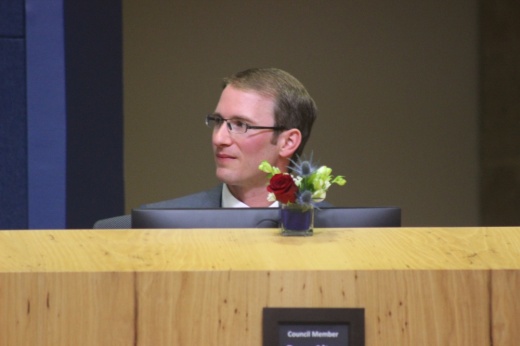On Feb. 15, council passed a resolution, drafted by council member Ryan Alter, that will do the following:
- Start a community input process on an environmental investment plan, including a public meeting on May 30
- “Reaffirm” a target of net-zero emissions by 2040, a goal set in the Austin Climate Equity Plan
- Draft what investment options can be made to fulfill many of the city’s adopted plans related to the environment and bring recommendations to council
The Austin Climate Equity Plan, passed in 2021, outlines 74 strategies to achieve its goals, including prioritizing greenhouse gas reduction and supporting community-led initiatives. Out of these strategies, 41 are underway, and three have been completed since August 2022.
The plan also set a goal for the city to reach net-zero carbon emissions by 2040. This means local greenhouse gas emissions, such as those from fossil fuels and landfills, would be removed from the atmosphere through reductions, storage or carbon offset credits.
“The net-zero goal of the Climate Equity Plan is very worthy and one of the most ambitious plans in the nation, but it's also perhaps one of the least ambitious in terms of the funding to back it up,” said Lucia Athens, former Austin Chief Sustainability Officer, during public comment Feb. 15. “So I think this is a really critical step.”
Alter told Community Impact the city has fallen short in many instances to make the investments needed to meet these goals, and the point of the resolution is to address this.
What they’re saying
Council member Mackenzie Kelly voted no on the item, citing potential burdens on taxpayers.
“I just heard from people yesterday who are concerned about the possibility of more taxes in the form of a bond,” Kelly said Feb. 15. “It's my job and our job as elected officials to not increase the financial burden on those who live in our city.”
Funding could be sought through utility rates and fees, general fund expenditures, grants or could even be brought to voters through a bond election this November, Alter suggests in the resolution.
A bond would be against the advice of the city’s financial staff, who have said another election should not be held until November 2026 due to how many bond projects the city is still completing.
Alter told Community Impact if funding is recommended by bringing a bond to the voters, then the matter of climate change is too pressing to wait another two years. He also said Austin is within both state requirements and the city’s own financial policies on the scale of debt it can take on during a Feb. 13 council work session.
A detailed report on the city’s bond capacity is expected in the coming weeks.
What’s next
A public hearing will take place May 30 regarding the city’s climate investments. A location and time are to be determined.
Ben Thompson contributed to this report.





